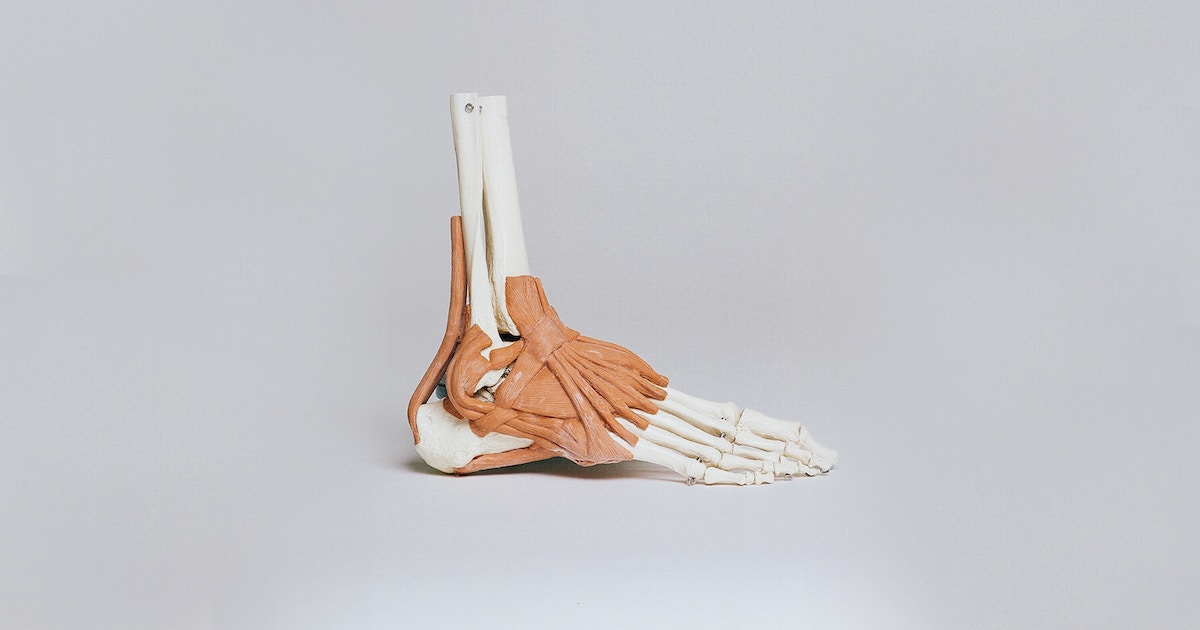
What You Need to Know About the Top Computer Science Graduate Programs
You don't necessarily need a master's degree to land a [...]

When I first began applying to colleges, I wasn’t exactly sure which major I wanted to pursue. I teetered between math and medicine until one day my mom told me about an emerging field called biomedical engineering.
This blend of two subjects I was interested in ended up being my major in college, and ultimately the area in which I earned my master’s degree.
Now, with about six years of biomedical schooling behind me, I’ve got a lot of advice to college-bound students who are considering the field.
A course of study in biomedical engineering can prepare students for the engineering industry as well as for medical school. My school, the University of California, Irvine, actually offered two tracks for aspiring biomedical engineers: biomedical engineering and pre-med biomedical engineering. (As its name suggests, the pre-med track is geared toward preparing students for a career in medicine.)
Pre-med BMEs (biomedical engineers) will typically take more chemistry and biology classes and fewer engineering classes than their traditional BME counterparts. All of my BME classes for the first two years of undergraduate study included traditional and pre-med students, but most classes in my junior and senior year were limited to traditional BMEs (with a few pre-med exceptions).
A common misconception about biomedical engineering is that you’re studying biology and engineering at the same time. Some classes were purely focused on engineering while others were solely biology-based, but many of my classes involved a combination of the two. Most frequently, we’d have to apply engineering solutions to biological problems. After learning about the movement of the body, for example, students would have to calculate the torque of a human bone under a certain amount of force.
Pursuing a major that includes elements of two disciplines, I had a good amount of flexibility in terms of electives. One class I ended up taking was in microelectromechanical systems (MEMS). Courses like this are typically only offered as electrical engineering courses, but they are also relevant to the biomedical industry. (MEMS ended up being my specialization, thanks in part to that undergrad elective.) The beauty of many of these classes is that they are usually introductory-level, which allows students with a general engineering background to keep up.
With so many options, it’s difficult to fit such a wide range of classes into four years. Although this is standard, it’s not rare for students to extend their undergraduate experience to five years. This allows for greater flexibility of classes and also more time to get a better sense of what you want to do within the field. I finished in four years, but began my graduate coursework immediately afterward.
Earning a master’s degree in biomedical engineering can take 1–2 years. If you stay on at the same university, you’ll likely have the option of saving time and money by skipping some of the classes you’ve already taken.
A Ph.D. program in this discipline may last 4–5 years, but this largely depends upon whether you’ve got a presentable thesis after conducting extensive research within your area of specialization.
Postgraduate options are flexible with a biomedical engineering degree. As I mentioned earlier, medical school is a likely choice for pre-med biomedical engineers. These students would take the MCAT and apply to medical school just like any other student. One potential advantage of pursuing pre-med biomedical engineering (as opposed to a standard pre-med track) is that the extra engineering background may make students more attractive to medical schools.
Two other options for biomedical engineers are industry and academia. Students interested in doing research or pursuing a Ph.D. may become biomedical engineering professors themselves. The most popular option, however, is industry. Many biomedical students hope to work for a company that makes medical devices. Though it’s a popular option among BME students, it has its own set of obstacles.
When I was a freshman in college, biomedical engineering was all the rage. It was a relatively new major, but even more exciting was the fact that it was on the verge of tremendous expansion as a professional field. Some articles, like one in Forbes, predicted a growth rate as high as 61 percent in the coming years. Learning this as a freshman, I felt like I had hit the jackpot. Here I was, being a pioneer and taking on a new major: Lo and behold, I thought, this is the best major I could have chosen! Biomedical companies should be begging me to join their company, right?
Wrong.
Biomedical companies are the absolute minority represented at career fairs (behind even civil engineering and aerospace engineering). I remember lining up for over an hour just to speak with representatives from one biomedical company — since all of the biomedical students were bottlenecked to the few relevant firms present.
While it’s a far cry from 61 percent, the U.S. Bureau of Labor Statistics (BLS) projects 27 percent growth — or 5,200 new jobs between 2012 and 2022 — in the biomedical field, “much faster than average” as compared with other industries. At the same time, the BLS reports that median pay for jobs in this sector (as of 2012) was just shy of $87,000, which is quite high for recent college graduates.
Growing up, my mom always wanted me to be well-rounded. I took swimming lessons, signed up for a soccer league, played basketball, did taekwondo, and took part in lots of other activities. Doing a little of everything is great as a kid, but arguably less so as you grow up. We simply don’t live long enough to be experts at everything in life.
Pursuing biomedical engineering is a little like participating in many activities as a kid. You’ll take some classes in mechanics, then get your toes wet with programming, and then take some classes in electrical engineering. And of course, you’ll take biology and chemistry courses. What does that make you in the end? Hopefully, you’ll come out the other end a well-rounded engineer who knows a bit about all branches of engineering, as well as the material sciences and medicine. The downside is that you might not be specialized enough in a particular area (mechanical or electrical, for example) to consider a career in one of these fields.
If you’re committed to the biomedical industry, this isn’t a problem. But it’s worth noting that when such companies look to hire, they won’t restrict themselves to biomedical engineers. They’ll also consider mechanical, electrical, and computer science engineers, in which case, being a jack–of–all–trades may work against you. Why hire a biomedical engineer with a limited background in circuits and SolidWorks (a computer-aided design program) when they could hire a mechanical engineer with lots of SolidWorks experience, or an electrical engineer who’s worked with circuitry for many years?
Of course, the advantage of being a biomedical engineer is that you’ll have greater knowledge and an increased understanding of the biological side of things. A mechanical engineer might be better with software, but she may not know much about the biocompatibility of what she is designing, nor fully understand how her device would be used in a medical capacity. This is where biomedical engineers shine; they fill this niche and stand out from other specializations because of their varied training.
Biomedical engineering has been very rewarding for me, and I wouldn’t change my major if I could do it all again. While I certainly haven’t seen the job growth projected when I was an undergraduate, I can confirm that the industry is expanding. Nearly everyone I know who majored in this field is currently working within it, so, anecdotally at least, it seems that there are plenty of jobs to go around.
What you should be aware of, however, is that your mechanical, electrical, or computer science engineering friend will be able to apply to the same biomedical company you have your eye on, as well as to other companies that you can’t. The difference is whether your major, background, achievement, and experience would make you more attractive than other engineers.
Questions or feedback? Email editor@noodle.com

You don't necessarily need a master's degree to land a [...]

Glassdoor's annual list of top companies to work for include [...]
Categorized as: Engineering, Information Technology & Engineering